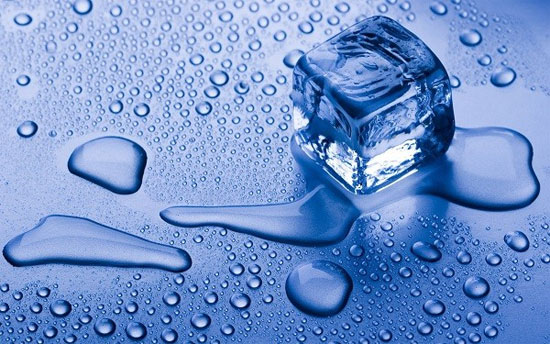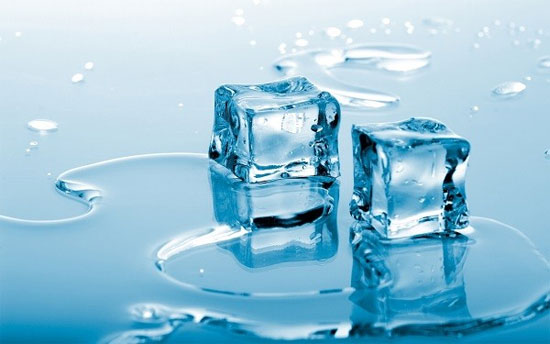Detect new state of water when reaching extreme cold
New research shows that when water cools to an extremely low temperature, it will transform into a new form .
Researchers at the University of Arkansas (USA) have determined that, when water is cooled to an extremely low temperature, it will transform into a new form of liquid.
As is known, all substances often go through transitions between the three basic states of matter - solid, liquid and gas. At transitions, the nature of a substance can change dramatically and suddenly.
A previously proposed hypothesis has explained some of the strange states of water when it is said that there exists a similar transition that can take place between two different liquid states, in which the arrangement of water molecules change so that these two states have very different densities.

Through the simulation of "super-cold" water experiments, Feng "Seymour's team of scientists, Professor Wang from the College of Arts and Sciences, affirmed that there is a " liquid-liquid " transition phase at temperature 207K or about -66 degrees Celsius.
Supercooled is the state in which the temperature of the liquid (or gas) falls below the freezing temperature, which remains un solidified. Normally when it reaches the freezing temperature, the crystals will be formed around the agglomeration nucleus and the liquid will turn into a solid state. The agglomerated nucleus here may be dust, like the process of condensing water vapor into clouds. If such agglutination is missing, the liquid will not solidify and become "super cold".
This new study explores the molecular structure of water under a variety of different pressures and temperatures. It has provided some evidence for the existence of this liquid-liquid state transition.

However, this transition is difficult to observe because it only occurs at temperatures and pressures at which normal water cannot exist in liquid form.
Professor Wang said: "In 1 millionth of a second, water did not really form ice but turned into a new form of liquid. This study provides strong supportive evidence for research. a transition phase between two separate phases of liquid water ". "It is the liquid-liquid phase transition in supercooled water that will be used to explain many of the water's unusual behavior , " Wang added.
The study was published in the Proceedings of the National Academy of Sciences.
- How does extreme cold affect the human body?
- Europe is extremely cold, kingfishers die hard when they go to the water to hunt
- Why chill the cold water makes you regain your temper immediately?
- How does extreme cold weather affect your phone?
- Scientists boil water up to 100,000 degrees Celsius in a time of 10 trillion seconds
- Discover a new state of water
- Siberian people bathing in cold water in the middle of the sky
- Ancient medicine confirms that cold water is more harmful to the body than warm water
- The world is
- Does hot water freeze faster than cold water?
- China suffered the worst cold spell in 30 years
- Hot weather everyone loves cold water but it turns out this is the kind of water we need
 'Fine laughs' - Scary and painful torture in ancient times
'Fine laughs' - Scary and painful torture in ancient times The sequence of numbers 142857 of the Egyptian pyramids is known as the strangest number in the world - Why?
The sequence of numbers 142857 of the Egyptian pyramids is known as the strangest number in the world - Why? History of the iron
History of the iron What is alum?
What is alum? Korean scientists develop a method to quickly produce diamonds in 150 minutes
Korean scientists develop a method to quickly produce diamonds in 150 minutes  Developing the world's fastest CO2 capture system
Developing the world's fastest CO2 capture system  Successfully developing metamorphic metal, the future of creating T-1000 like in 'Terminator' will not be far away
Successfully developing metamorphic metal, the future of creating T-1000 like in 'Terminator' will not be far away  A team of experts in creating liquid robots that work continuously without electricity
A team of experts in creating liquid robots that work continuously without electricity  The first liquid metal network was successfully built, the future of 'Terminator' T-1000 is not far away?
The first liquid metal network was successfully built, the future of 'Terminator' T-1000 is not far away?  Why is ice solid but floating?
Why is ice solid but floating? 